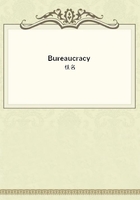
第28章 THREE-QUARTER LENGTH PORTRAITS OF CERTAIN GOVERNME
This ministerial apprentice decamps when his protector leaves office, returning sometimes when he returns. If the minister enjoys the royal favor when he falls, or still has parliamentary hopes, he takes his secretary with him into retirement only to bring him back on his return; otherwise he puts him to grass in some of the various administrative pastures,--for instance, in the Court of Exchequer, that wayside refuge where private secretaries wait for the storm to blow over. The young man is not precisely a government official; he is a political character, however; and sometimes his politics are limited to those of one man. When we think of the number of letters it is the private secretary's fate to open and read, besides all his other avocations, it is very evident that under a monarchical government his services would be well paid for. A drudge of this kind costs ten or twenty thousand francs a year; and he enjoys, moreover, the opera-boxes, the social invitations, and the carriages of the minister. The Emperor of Russia would be thankful to be able to pay fifty thousand a year to one of these amiable constitutional poodles, so gentle, so nicely curled, so caressing, so docile, always spick and span,--careful watch-dogs besides, and faithful to a degree! But the private secretary is a product of the representative government hot-house; he is propagated and developed there, and there only. Under a monarchy you will find none but courtiers and vassals, whereas under a constitutional government you may be flattered, served, and adulated by free men. In France ministers are better off than kings or women;they have some one who thoroughly understands them. Perhaps, indeed, the private secretary is to be pitied as much as women and white paper. They are nonentities who are made to bear all things. They are allowed no talents except hidden ones, which must be employed in the service of their ministers. A public show of talent would ruin them.
The private secretary is therefore an intimate friend in the gift of government-- However, let us return to the bureaus.
Three men-servants lived in peace in the Billardiere division, to wit:
a footman for the two bureaus, another for the service of the two chiefs, and a third for the director of the division himself. All three were lodged, warmed, and clothed by the State, and wore the well-known livery of the State, blue coat with red pipings for undress, and broad red, white, and blue braid for great occasions. La Billardiere's man had the air of a gentleman-usher, an innovation which gave an aspect of dignity to the division.
Pillars of the ministry, experts in all manners and customs bureaucratic, well-warmed and clothed at the State's expense, growing rich by reason of their few wants, these lackeys saw completely through the government officials, collectively and individually. They had no better way of amusing their idle hours than by observing these personages and studying their peculiarities. They knew how far to trust the clerks with loans of money, doing their various commissions with absolute discretion; they pawned and took out of pawn, bought up bills when due, and lent money without interest, albeit no clerk ever borrowed of them without returning a "gratification." These servants without a master received a salary of nine hundred francs a year; new years' gifts and "gratifications" brought their emoluments to twelve hundred francs, and they made almost as much money by serving breakfasts to the clerks at the office.
The elder of these men, who was also the richest, waited upon the main body of the clerks. He was sixty years of age, with white hair cropped short like a brush; stout, thickset, and apoplectic about the neck, with a vulgar pimpled face, gray eyes, and a mouth like a furnace door; such was the profile portrait of Antoine, the oldest attendant in the ministry. He had brought his two nephews, Laurent and Gabriel, from Echelles in Savoie,--one to serve the heads of the bureaus, the other the director himself. All three came to open the offices and clean them, between seven and eight o'clock in the morning; at which time they read the newspapers and talked civil service politics from their point of view with the servants of other divisions, exchanging the bureaucratic gossip. In common with servants of modern houses who know their masters' private affairs thoroughly, they lived at the ministry like spiders at the centre of a web, where they felt the slightest jar of the fabric.
On a Thursday evening, the day after the ministerial reception and Madame Rabourdin's evening party, just as Antoine was trimming his beard and his nephews were assisting him in the antechamber of the division on the upper floor, they were surprised by the unexpected arrival of one of the clerks.